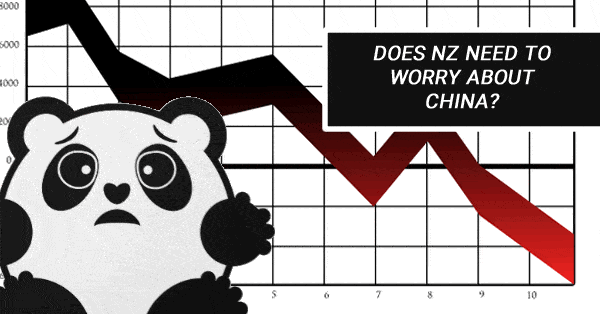Global stockmarkets are down 8% this year and China is fingered as the main cause of the drop. People are rightly asking why.
Over the last 15 years I have started travelling to China frequently. In particular I went beyond the eastern seaboard and into central China and out to the western regions of the country. There’s been a constant takeaway from my trips: How do they continue to build highways, cities of apartments, airports and other infrastructure – that never appear to be busy or even utilised? The investment overhang has been a constant visible right through the super-cycle.
We always heard of patient capital, happy to invest for the long term; heard that because the State governments were the funders the rate of return wasn’t that important; heard that China’s huge investment/GDP ratio would be the key to its sustainability. But the reality surely is that even for a government, you can’t just keep building white elephants. At some stage all that outlay has to provide a return – somehow.
And so it is proving to be, in no uncertain terms. The finances of China’s various State governments are suffering from the type of debt overhang that characterised the global financial crisis in the West. Sure the central government can forgive the largesse and write off the loans, but unambiguously they couldn’t continue the building of empty monuments to economic progress.
China’s economic growth is still falling, signs of it stabilising remain hopeful. For all the countries that have banked their futures on China’s “engine room”, the economic chills remain very much in place. That is why Australia’s sharemarket is down 18% since April 2015, and why mining company BHP Billiton has lost $41b of value. Yes outward tourism, migration and capital flows from China’s super cycle will continue for a while, but without some stabilisation at home, they too must inevitably slow.
Economists have long talked about what needed – is a shift from investment to household consumption spending in the Chinese economy so the large investments of recent years can finally spit out some sort of return. But as layoffs of Chinese workers continue from all the infrastructure projects, quite the opposite is happening. Individual households – with the exception of those who made megabucks from doing the development projects – are tightening their belts. In Western economies the automatic stabiliser for such tough periods is welfare payments. China doesn’t have that mechanism – yet.
The official data says the economy grew over 2015 at 6.9%, a whisker below 2014’s 7.3%. Nobody believes the data of course, so we can expect ongoing official acknowledgement of the reality to reluctantly emerge over 2016. The data on orders, inventories and production just do not support the stats. Neither do the abandoned towns of the rust belt in China’s northeast.
My suggestion to people intent on getting a fix on the future of the Chinese economy is to go there. Travel beyond the eastern seaboard, see for yourselves the investment overhang. Then looks for signs that Chinese consumers are spending like nuts, instead of pulling back. Without that I doubt very much whether China can get up again – the old formula of “build and they will come” has failed. Ever the pragmatic people, I don’t see them trying to rekindle that formula again.
There is nothing like a crisis to galvanise action – at last 2016 may see more urgency given to stimulate household spending. The move to a two-child policy certainly won’t cut it in the short term, and raising wages is for now a mitigation only. More demand side measures are urgently required if households are not going to join further with the contracting spiral. That means putting money in the hands of households by any means necessary; more than just wage rises, they need to loosen access to credit, and create a welfare system. These things would help reduce the obsession of Chinese households with saving, and get them spending instead.
Rather than government and its agencies having all the access to the financial flows from China’s export success, households need to be able to express their confidence by direct access to credit on the same terms. So long as the central bank allocates credit with such a heavy hand, that just cannot happen. The formula isn’t hard, China still has massive foreign reserves, it still runs a surplus. It’s what it does with the surplus that matters – and that needs to change fast, if it’s not all going to just fuel capital flight.

